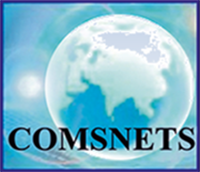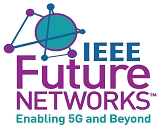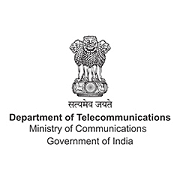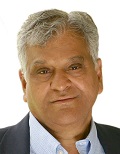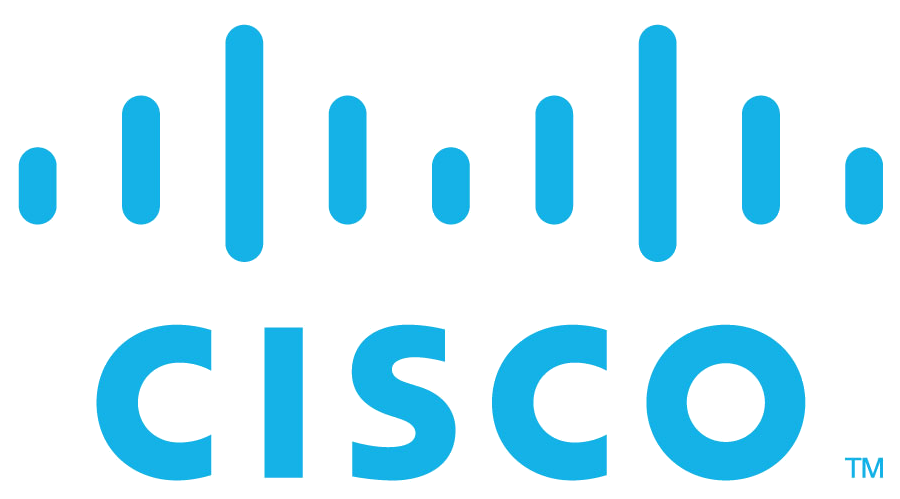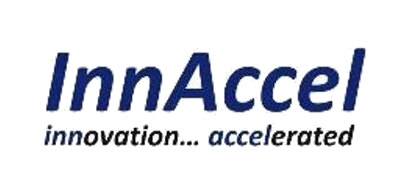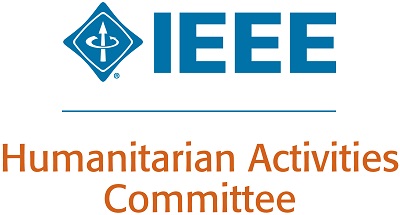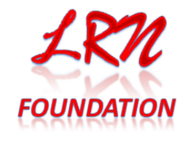Workshop on Intelligent Transportation Systems (ITS)
Workshop Date: 11th January 2020
The sixth workshop on Intelligent Transportation Systems (ITS) will be held in conjunction with COMSNETS 2020. This interdisciplinary workshop aims to bring together researchers from various disciplines and will focus particularly on interdisciplinary approaches to solving urban transportation problems. The workshop invites original papers that make contributions to modeling and control of urban transportation systems. We welcome papers involving any combination of theory, analytical modeling and optimization, numerical simulations, real-world data-driven approaches, experimentation, advanced deployment and case studies. Studies involving economic, behavioral and environmental aspects are equally welcome.
Domains of interest include, but are not limited to:
- V2V and V2I theory and applications
- Automated Vehicles
- Shared Mobility and Urban Freight
- Electric Vehicles
- Traffic theory for ITS
- Modelling, control and simulation
- Network Optimization
- Multi-modal and public transportation management
- Human factors and human behavior
- Emergencies and accidents: phenomena, management and mitigation
- Sensors and Big data and ITS
- ITS field tests, deployment and experimentation
- Design and evaluation of machine learning models on IoT data
- Emissions, noise, environment
Submission Guidelines
- Submissions must be no greater than 6 pages in length including all figures, tables, and references and must be a PDF file. A minimum number of 3 pages are required.
- Reviews will be single-blind: authors name and affiliation should be included in the submission.
- Submissions must follow the formatting guidelines as given on IEEE Website.
- All workshop papers (full papers - both regular and invited) will appear in conference proceedings and submitted to IEEE Xplore as well as other Abstracting and Indexing (A&I) databases.
- All papers must be in Adobe Portable Document Format (PDF) and submitted through the ITS Workshop submission site on EDAS.
- Papers can also be submitted through EDAS directly : Click Here
Important Deadlines
| Paper Submission | |
| Notification of Acceptance | |
| Camera-ready Submission | |
| Workshop Date | 11th January 2020 |
Keynote Speakers
Dr. Vijay Gopal Kovvali
Associate Director, IBI Group, IndiaVisit Homepage
A review of the public sector ITS projects in the past decade in India shows that very few projects were successfully implemented. With Government of India’s 100 smart cities initiative, it is imperative for consultants, system integrator and decision makers to understand the challenges and learnings from these earlier ITS projects to create successful smart cities. This talk draws upon past experience on ITS and Smart City projects to provide recommendations on technical, operational and human factors associated with Indian ITS projects to make technology projects successful.
Dr. Vijay Kovvali has over 25 years of experience in transportation engineering with focus on traffic engineering, transport technology, data analytics and modelling. His Ph.D. is from Texas A&M University with focus on development of traffic signal optimization model for both undersaturated and oversaturated conditions. His recent experience includes consultation on transport technology for smart cities, ITS for transit and operations management for buses. Dr. Kovvali is passionate about sustainable transportation, road safety and child-friendly transport networks for enhancing livability of our cities.
Dr. N.Viswanadham
IISc Bangalore, IndiaVisit Homepage
Transportation systems, buses, trucks, trains and ships can transport either passenger or goods or both. While passenger transport receives much attention, the goods transporters create economic benefits. The goods transport systems are called logistics networks, which are both local and global. Inter country as well as intercity goods transports are very important for the country’s economy. The logistics industry is asset intensive and needs vehicles, containers, warehouses, employees, IT infrastructure, connections with Governments, shippers and consumers, etc. The logistics services are provided by the private sector and the logistics infrastructure such as roads, ports, airports etc are provided by the Governments. The performance of the logistics sector depends on both hard and soft infrastructure, skilled manpower, Government policies, cluster locations and connectivity, service providers, insurance agents, research in new technologies, and host of other things in addition those connected with actual goods transport and delivery.
Recent digitalization of Logistics industry called Logistics 4.0 makes use of “smart” containers, vehicles, pallets, and transport systems in order to create a fully networked supply stream that offers supply chain managers, shippers, freight forwarders, and others the necessary visibility to route transport and perform other logistics tasks in an optimal way. The Logistics 4.0 technological solutions are based on using drones, self-steering vehicles, sensors, Big Data, GPS, RFID, M2M. As part of the concept, the technologies dedicated to modern enterprises use i.e. virtual reality glasses, intelligent transporters, gates, forklifts and automatic vehicles. New Technologies are changing the industry structure and forcing re-examination of the business development strategies. Indeed, wealth and employment creation are moving from asset builders to service providers to start-ups.
In this lecture, after a brief introduction to the new technologies, we develop an ecosystem framework for logistics service sector that includes all the above stake holders and new technologies and develops methods for analyzing performance and mitigating risk. We present ecosystem examples inbound logistics, e-retail sectors and analyze their importance in the Indian context. The ecosystem is used for developing supply chain innovations and also mechanisms for supply chain Governance using the concept of logistics mall. We also talk about the startup scenario in the Logistics 4.0 area.
N. Viswanadham is INSA Honorary Scientist in the Computer Science and Automation at the Indian Institute of Science. From 1967-1998, he was faculty at the Indian Institute of Science (IISc). Professor Viswanadham was Professor and Executive Director for The Center of Excellence Global logistics and manufacturing strategies in the Indian school Of Business, during 2006-2011. He was Deputy Executive Director of The Logistics Institute-Asia Pacific and also Professor in Department of Mechanical and Production Engineering at the National University of Singapore during 1998-2005.
He is the recipient of the 1996 IISc Alumni award for excellence in research. He was conferred the Distinguished Alumni Award in 2009 by IISc. He was awarded the 2012 Prof S K Mitra Memorial Award by the INAE. He is a Fellow of the IEEE, a Fellow of Indian National Science Academy, Indian Academy of Sciences, Indian National Academy of Engineering, and The World Academy of Sciences.
Professor Viswanadham has made significant contributions to the areas of manufacturing, logistics and global supply chain networks. He is the author of Four Textbooks, Nine Edited Volumes, over two hundred forty journal and top tier conference papers. His current research efforts are on use of new technologies for Future Supply chain network design using blockchains and smart contracts and design of Competitive Business Models.
Dr. Pavankumar Tallapragada
IISc Bangalore, IndiaVisit Homepage
Networking is one of the key technologies that is enabling the current change in transportation systems. Taxi aggregation and ride sharing services are prime examples of this phenomenon. Networking together with ever improving technologies related to computation and autonomy, provides us with the opportunity to radically transform our transportation systems. In particular, with these technologies, we could achieve far greater coordination and hence efficiency. In this talk, I will present our work on two problems that seek to achieve such coordination. The first problem is on real-time coordination of autonomous and networked vehicles for intersection usage. The second problem is on coordinated first and last mode services in a multi-modal transportation system.
Bio: Pavan Tallapragada obtained his PhD at the University of Maryland in 2013. During 2014 to 2017 he was a postdoc at the University of California, San Diego. Since 2017, he is an Assistant Professor in the department of Electrical Engineering at the Indian Institute of Science. His research interests include networked control systems, distributed systems and control, cyber physical systems and networked transportation systems.
Workshop Agenda
| Time | Sessions |
| 08:55 AM - 09:00 AM | Opening Remarks by the Workshop Co-Chairs |
| 09:00 AM - 09:45 AM | Keynote Talk 1: Prof. N.Viswanadham, Emeritus Professor & INSA Senior Scientist, Indian Institute of Science, India "Intelligent Logistics Network Design using New Technologies" |
| 09:45 AM - 10:05 AM | Contributed Paper 1: "LOCATOR: A CLoud-FOg-enabled Framework for Facilitating Efficient LoCATiOn based SeRvices", Shreya Ghosh; Jaydeep Das; Soumya K Ghosh |
| 10:05 AM - 10:25 AM | Contributed Paper 2: "Application of Deep Learning for Bus Travel Time Prediction", Nithishwer Mourouganand; Anilkumar Bachu; Lelitha Vanajakshi |
| 10:25 AM - 10:45 AM | Contributed Paper 3: "An Intelligent Triphase Rule-Based Wheel Slip Controller with Slip Estimation for Heavy Vehicles", R Karthik; Akhil Challa; Harshal Anil Patil; Shankar Subramanian; Gunasekaran Vivekanandan; Sriram Sivaram |
| 10:45 AM - 11:15 AM | Tea Break |
| 11:15 AM - 12:00 PM | Keynote Talk 2: Dr. Vijay Gopal Kovvali, Associate Director, IBI Group, India "Implementation Challenges for ITS in India" |
| 12:00 PM - 12:20 PM | Contributed Paper 4: "A Case Study on Kernel Density Estimation and Hotspot Analysis in Detecting Traffic Accidents", Lakshmi Srikanth; Ishwarya Srikanth |
| 12:20 PM - 12:40 PM | Contributed Paper 5: "Vehicle Fall Severity Modeling using IoT and K-Nearest Neighbor Algorithm", Nikhil Kumar; Anurag Barthwal; Divya Lohani; Debopam Acharya |
| 12:40 PM - 1:00 PM | Contributed Paper 6: "Intelligent Fault Diagnosis of Air Brake System in Heavy Commercial Road Vehicles", Radhika Raveendran; Devika K b; Shankar Subramanian |
| 01:00 PM - 02:00 PM | Lunch Break |
| 02:00 PM - 02:45 PM | Keynote Talk 3: Dr. Pavankumar Tallapragada, IISc Bangalore, India "Towards coordinated networked transportation systems" |
| 02:45 PM - 03:05 PM | Contributed Paper 7: "A heuristic adaptive traffic control algorithm for signalized intersections", Bijul Raveendran; Tom Mathew; Nagendra Velaga |
| 03:05 PM - 03:25 PM | Contributed Paper 8: "A Probe-based Signal Control Design at an Isolated Intersection for Mixed Traffic Conditions", Maripini Himabindu; Bhargava Chilukuri; Lelitha Vanajakshi |
| 03:25 PM - 03:45 PM | Contributed Paper 9: "Estimation of Traffic Conditions along Highways Using Wi-Fi Technology", Nandan Maiti, Abirami A. Krishna, Deepak S, and Bhargava Rama Chilukuri |
| 03:45 PM - 04:15 PM | Tea Break |
| 04:15 PM - 04:35 PM | Contributed Paper 10: "Multivariate Analysis of Freeways Speed and Time Headway under Mixed Traffic Streams", Sandeep Singh; Akshay Kumar; Muhamed Niyas; Moses Santhakumar |
| 04:35 PM - 04:55 PM | Contributed Paper 11: "Discrete-Continuous Choice Framework to Model Driver Behaviour in Heterogeneous Traffic Conditions", Sangram Krishna Nirmale; Abdul Pinjari |
| 04:55 PM - 05:45 PM | Contributed Paper 12: "A Choice Modeling Framework with Stochastic Variables and Random Coefficients", Mehek Biswas; Abdul Pinjari; Sulagna Ghosh |
| 05:45 PM - 06:00 PM | Best Paper Award and Workshop Closure |
Program Committee:
Dr. Amit A Indian Institute of Technology Roorkee, India
Dr. Bhavathrathan B Indian Institute of Technology Palakkad, India
Dr. Anil Bachu Indian Institute of Technology Patna, India
Dr. Partha Pratim Dey Indian Institute of Technology Bhubaneswar, India
Mr. Rajesh Jayaprakash Tata Consultancy Services, India
Dr. Gopal Krishna Texas A&M University, USA
Dr. S. Vasantha Kumar VIT University, India
Dr. Rahul T.M Indian Institute of Technology Ropar, India
Dr. Akhilesh Maurya Indian Institute of Technology Guwahati, India
Dr. Ranju Mohan Indian Institute of Science Bengaluru, India
Dr. Smruti Mohapatra Indian Institute of Technology Dhanbad, India
Dr. Manoj Kumar Panda Amrita Vishwa Vidyapeetham, India
Dr. Abdul Pinjari Indian Institute of Science, India
Dr. Ravi Seshadri Singapore-MIT Alliance for Research & Technology Centre, Singapore
Dr. Pavan Tallapragada Indian Institute of Science Bengaluru, India
Dr. Lelitha Vanajakshi Indian Institute of Technology Madras, India
Dr. Nagendra Velaga Indian Institute of Technology Bombay, India
Dr. Hrishikesh Venkataraman Indian Institute of Information Technology, Sri City, Chittoor, India
Workshop Co-Chairs
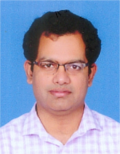
Bhargava Rama Chilukuri
IIT Madras, India

Tarun Rambha
IISc Bangalore, India
